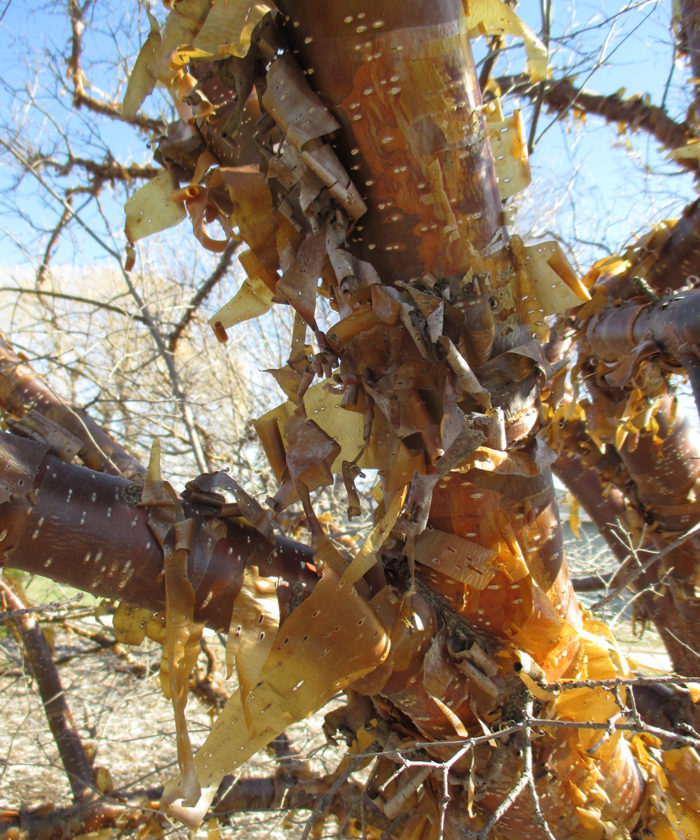
A feature that many overlook when selecting a tree is the bark. Distinctive bark contributes visual interest, and an appreciative eye will enjoy the limitless range of beautiful colors and textures. Understandably, we might initially be looking at trees for their potential for shade, screening, flowers, colorful foliage, fall color, or other characteristics, but the value of interesting bark shouldn’t be forgotten. Some bark is quite subtle during the growing season. The color, patterns, and texture will undoubtedly become more conspicuous in the winter months. Here are five of my favorite selections for bark with winter interest.
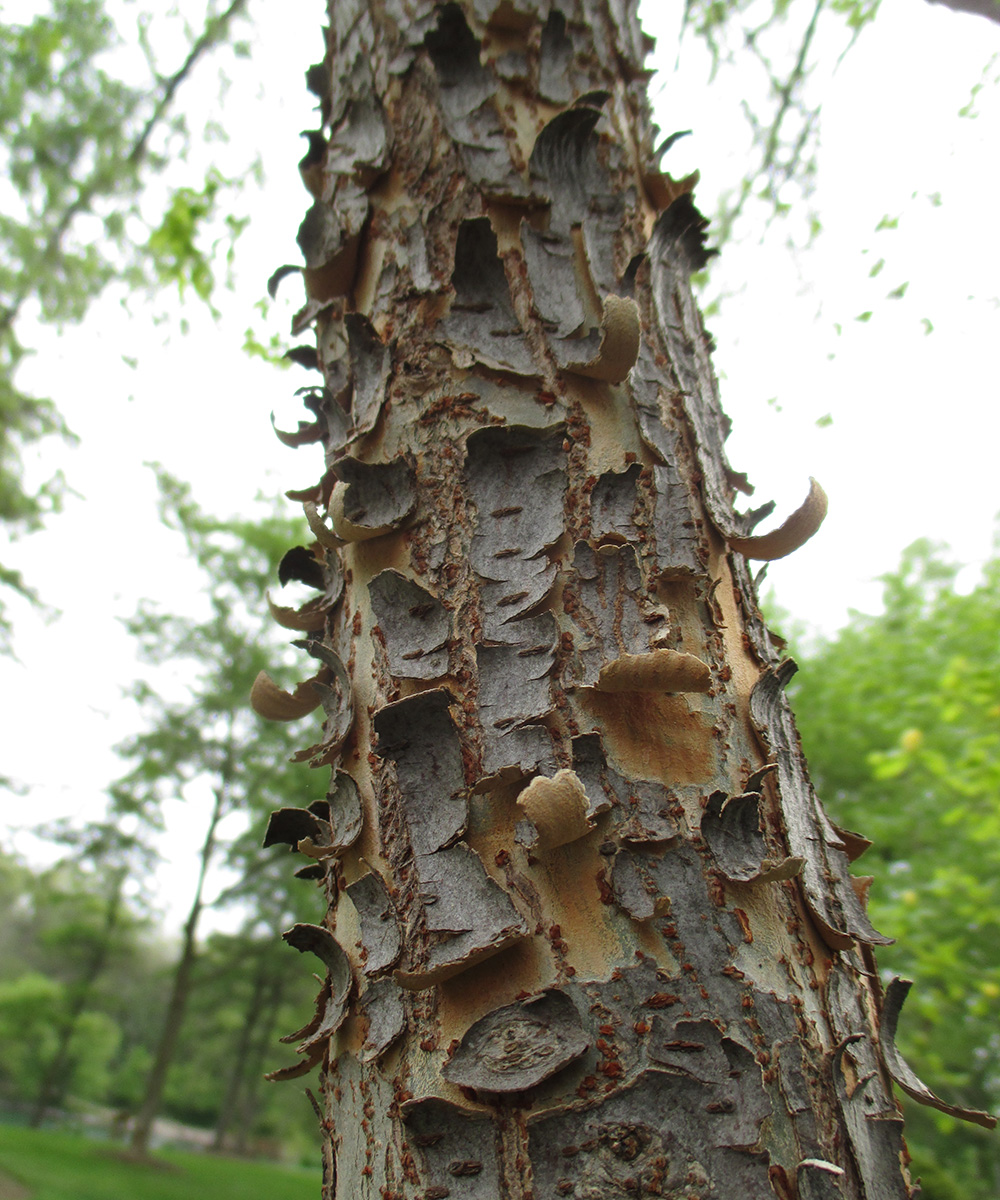
‘Hallelujah’ lacebark elm
Ulmus parvifolia ‘Hallelujah’, Zones 4–9
Size: 40 to 50 feet tall and 30 to 60 feet wide
Conditions: Full sun; well-drained soil
This cold-tolerant, fast-growing elm is a tough, fast grower in many settings and will provide shade quickly. The clean, glossy foliage is noteworthy, although the bark characteristics only get better with age. At a young age, intense exfoliation produces many shorter, curling, and peeling pieces of bark that reveal a range of brown, cream, and green colors. With age, however, the exfoliation diminishes, exposing a significant and noticeable camouflage-colored mottling of gray, cream, orange, brown, and green.
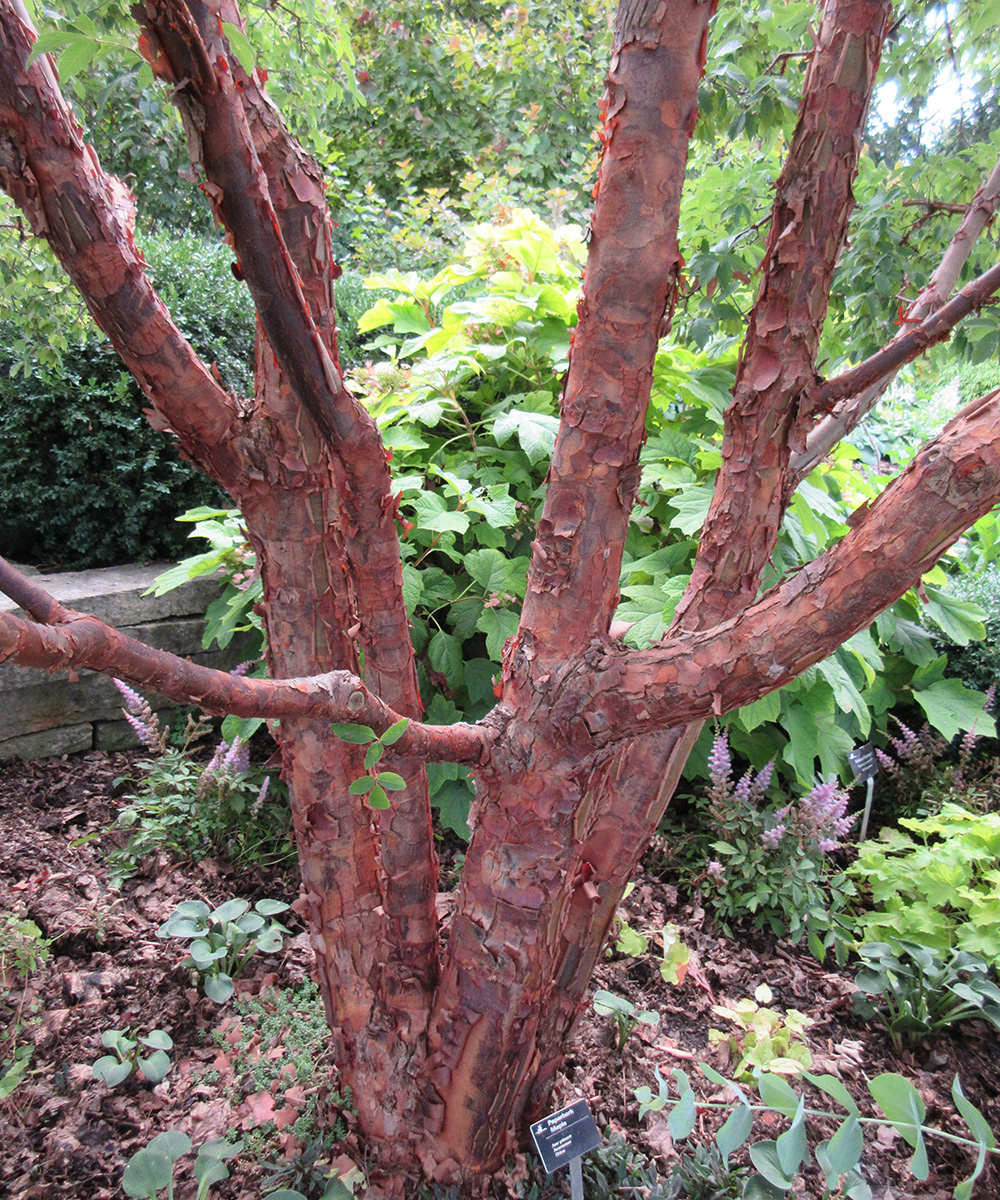
Paperbark maple
Acer griseum, Zones 4–8
Size: 15 to 20 feet tall and 15 to 25 feet wide
Conditions: Full sun to partial shade; moist, well-drained soil
This smaller maple is a wonderful specimen tree, although it can be a bit more tender in the northern part of its growing range. The dark green, trifoliate foliage turns red and orange in fall. Once the leaves fall, the exfoliating bark has a chance to shine. It ranges in color from copper to orange to cinnamon and red, with the most prominent peeling on younger trunks and branches. But the trunk and branch framework are a focal point in the winter landscape on trees of all ages.
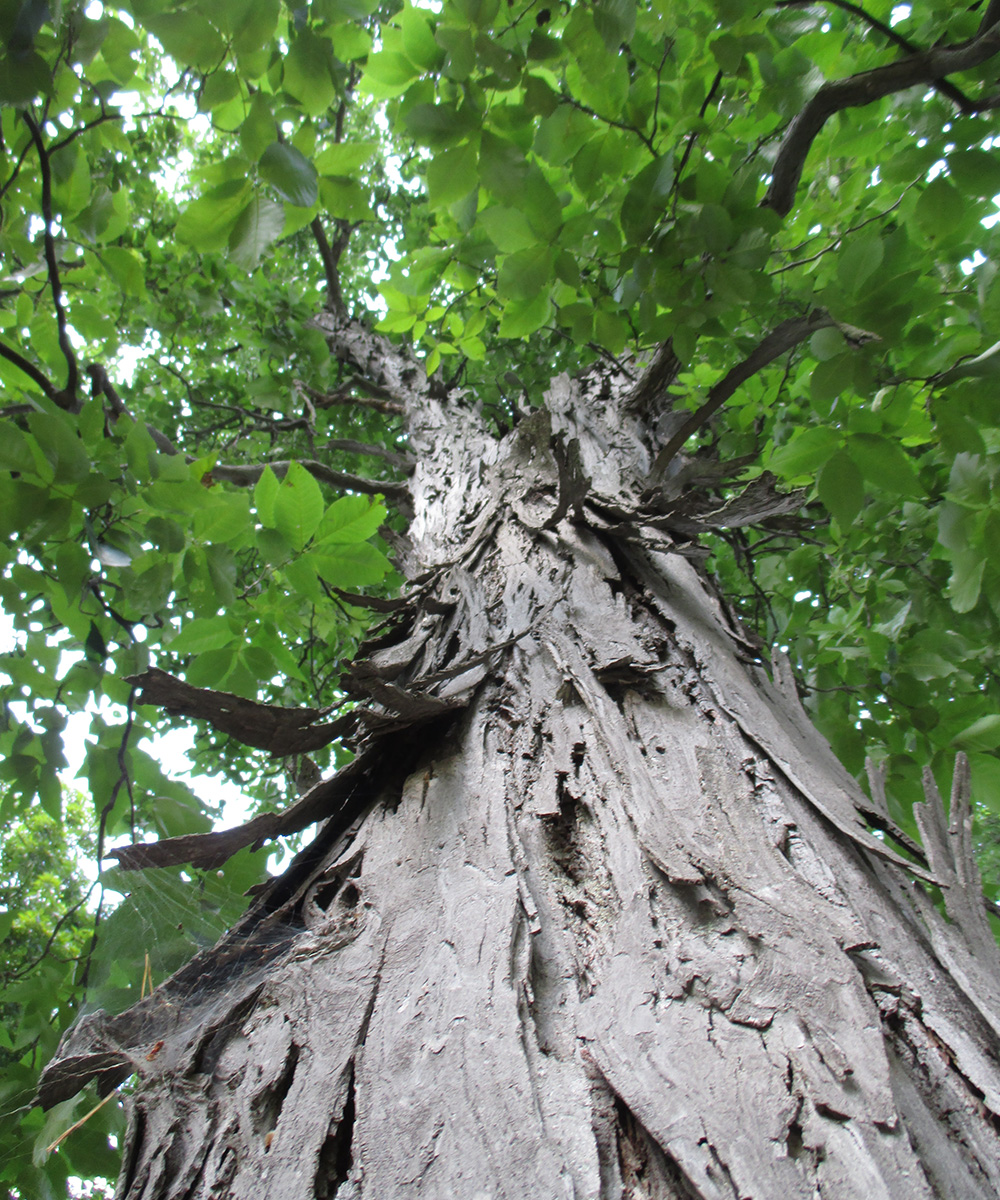
Shagbark hickory
Carya ovata, Zones 4–8
Size: 50 to 70 feet tall and 50 to 70 feet wide
Conditions: Full sun to partial shade; well-drained soil
This amazing native tree has a broad range of distribution, from Quebec to Minnesota and south to Texas and Georgia. Give this large shade tree plenty of space to grow, and include it in woodland restorations as well. The nuts are enjoyed by a wide range of wildlife. The best characteristics of the long, peeling strips of bark improve with age. Significant curling of the bark is a common characteristic that helps people identify this native species.
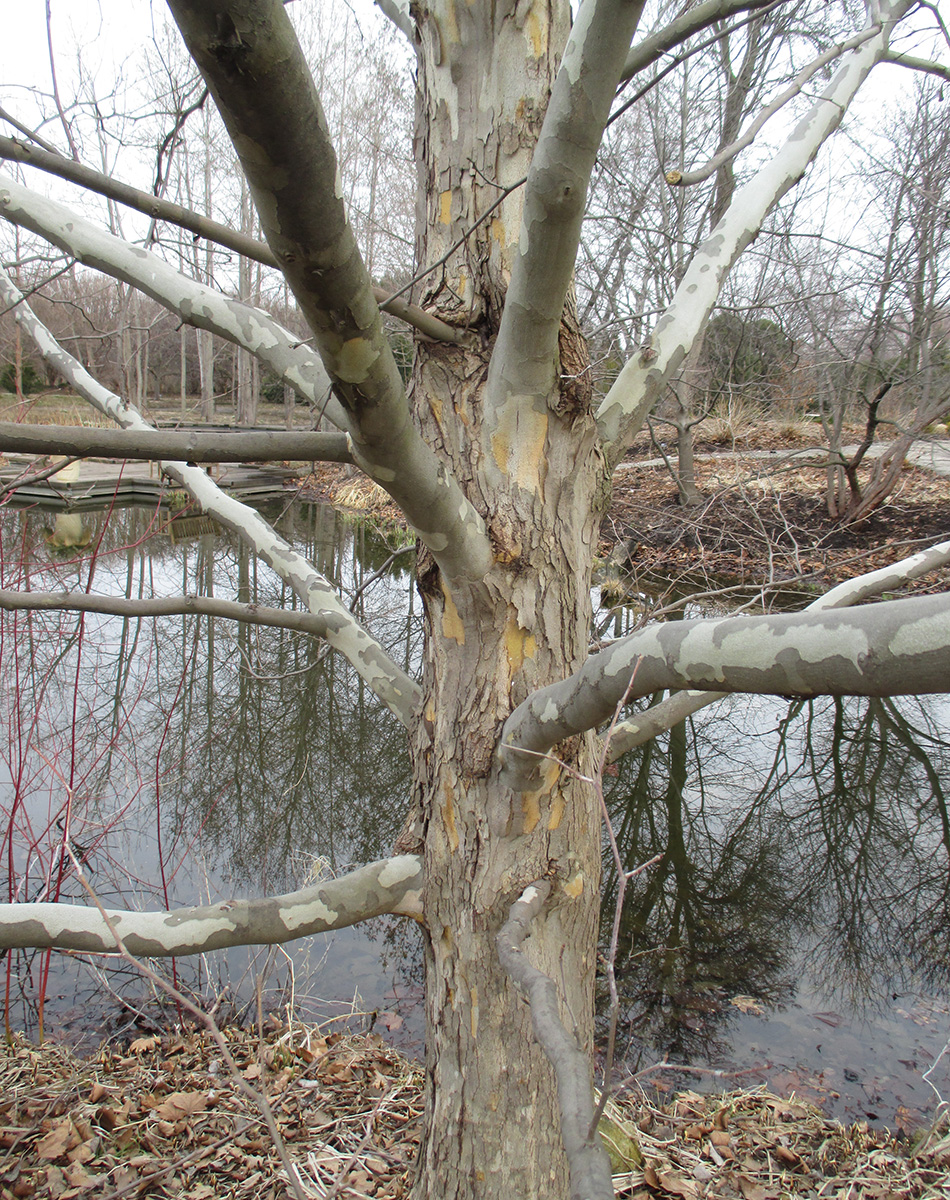
Exclamation!™ London planetree
Platanus × acerifolia ‘Morton Circle’, Zones 4–8
Size: 50 to 60 feet tall and 30 to 50 feet wide
Conditions: Full sun; well-drained soil
This large, fast-growing shade tree is extremely durable in gardens and urban landscapes and tolerates a wide range of soil conditions, including wet and dry situations and clay soils. This selection also tolerates alkaline soils and locations that are impacted by road salt. The mottled bark features shades of white, cream, tan, green, and brown, which stand out throughout the year, but particularly during the barren winter months. The beautiful marbling improves with age and is reminiscent of camouflage patterns.
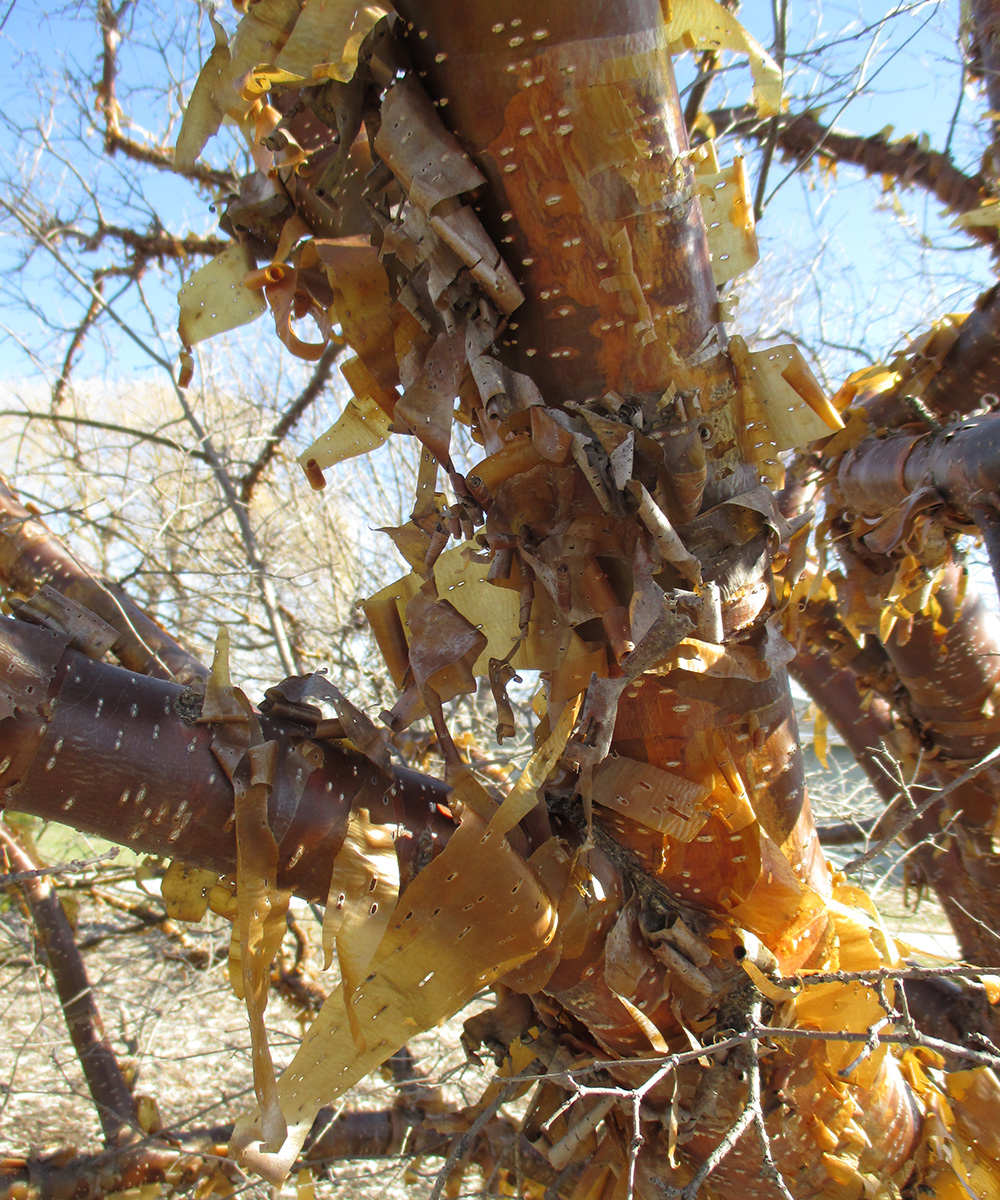
China Snow® Peking lilac
Syringa reticulata subsp. pekinensis ‘Morton’, Zones 3–7
Size: 20 to 25 feet tall and 15 to 25 feet wide
Conditions: Full sun; moist, well-drained soil
This is a beautiful specimen tree in a full-sun location where the late spring, fragrant white flower plumes bloom for weeks. The ornamental bark is conspicuous throughout the year. Exfoliating layers of coppery, amber bark begin to be more noticeable and provide more color contrast as the leaves drop in autumn. The peeling is most conspicuous on the younger growth. But no matter the age of the tree, shiny copper-colored trunks and branches look amazing in a snowy landscape.
—Mark Dwyer, former director of horticulture at Rotary Botanical Gardens in Janesville, Wisconsin, operates Landscape Prescriptions by MD.
Fine Gardening Recommended Products
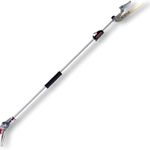
ARS Telescoping Long Reach Pruner
Fine Gardening receives a commission for items purchased through links on this site, including Amazon Associates and other affiliate advertising programs.

Attracting Beneficial Bugs to Your Garden, Revised and Updated Second Edition: A Natural Approach to Pest Control
Fine Gardening receives a commission for items purchased through links on this site, including Amazon Associates and other affiliate advertising programs.
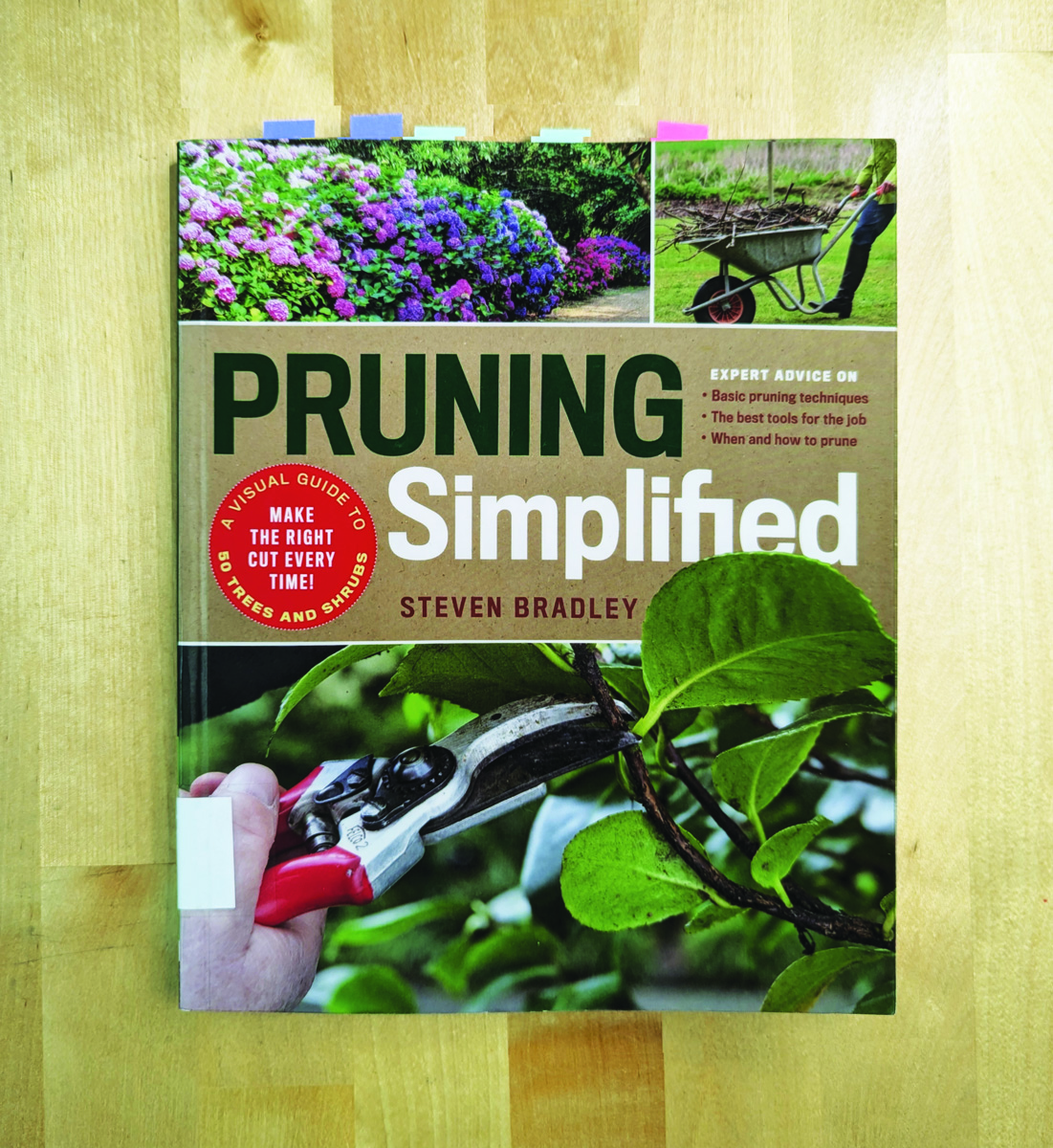
Pruning Simplified: A Step-by-Step Guide to 50 Popular Trees and Shrubs
Fine Gardening receives a commission for items purchased through links on this site, including Amazon Associates and other affiliate advertising programs.





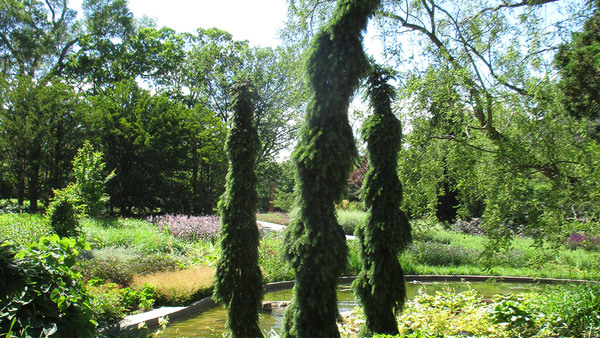

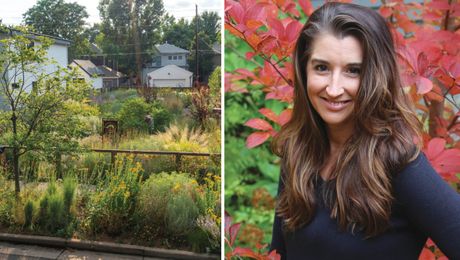










Comments
Log in or create an account to post a comment.
Sign up Log in